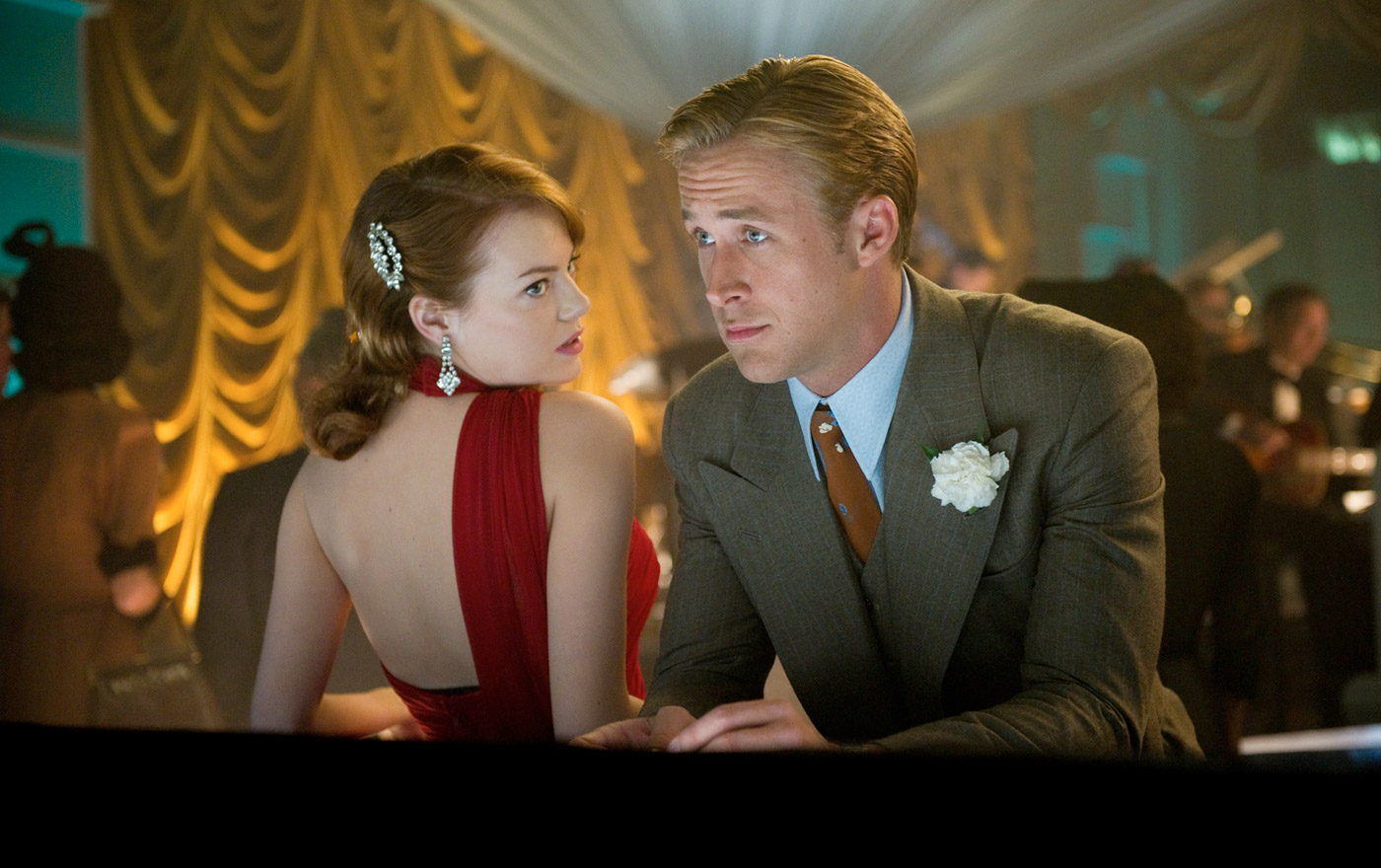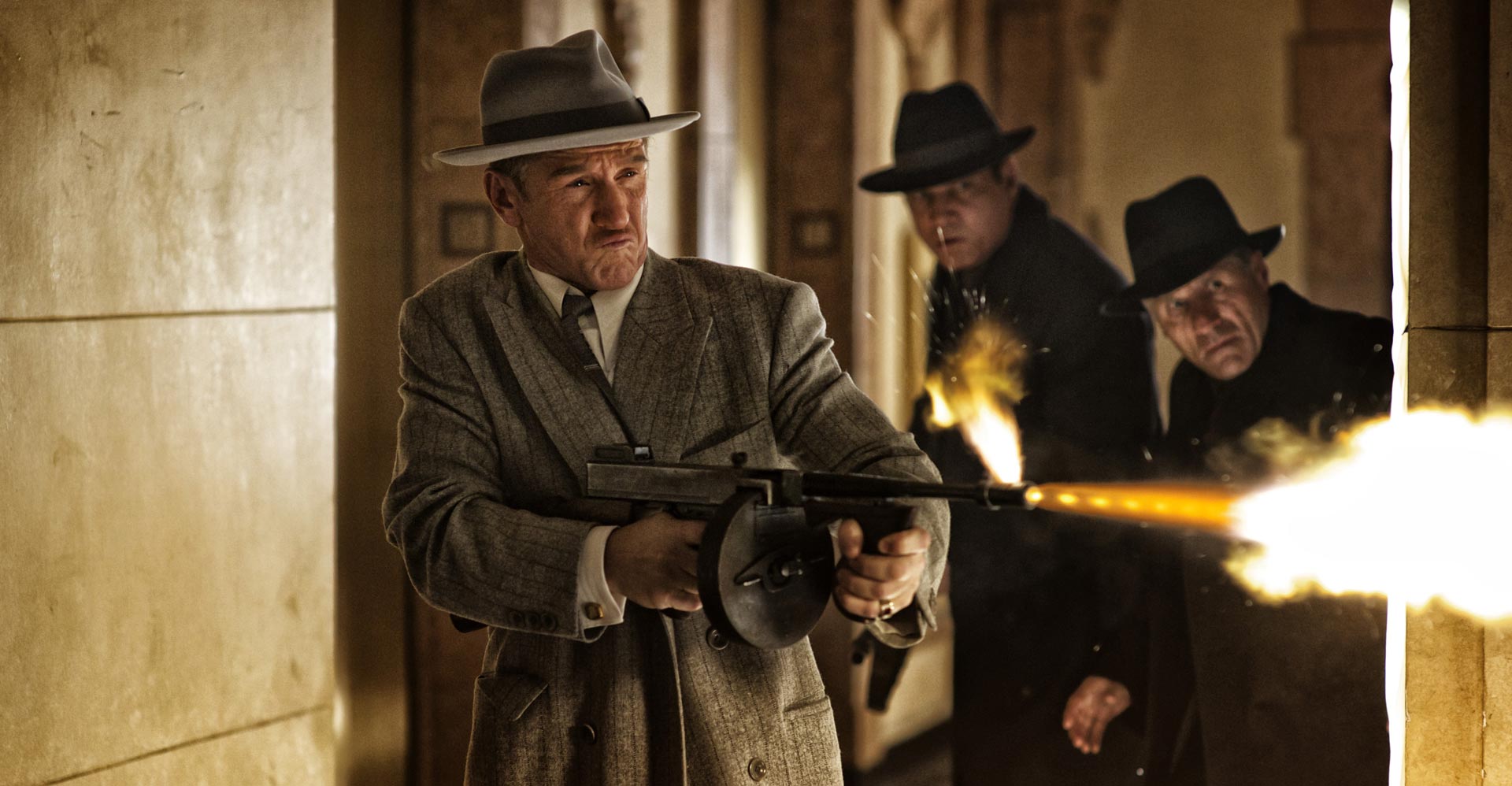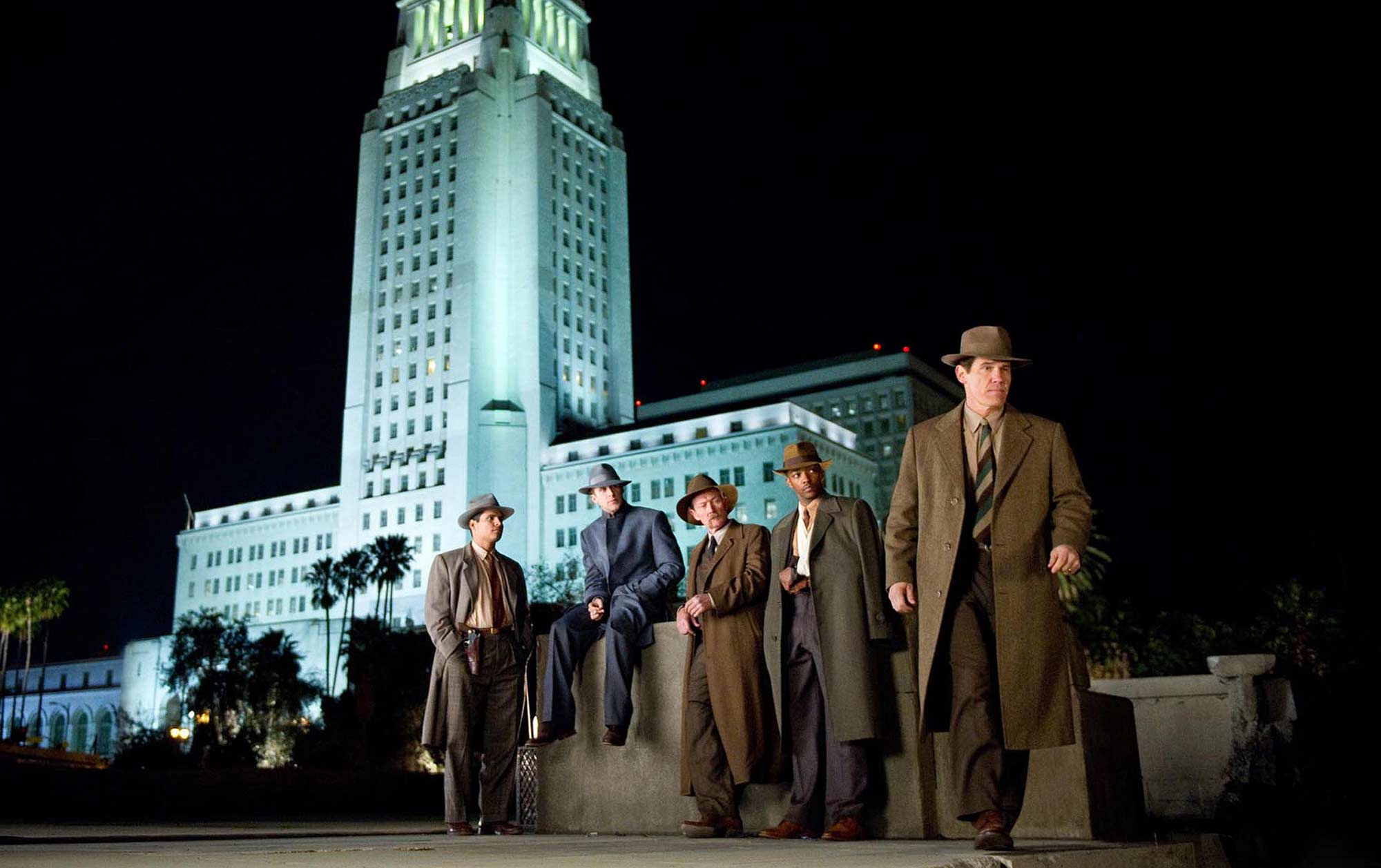|
In
1949 Los Angeles is a city ruled by the mob. At the top of the crime
syndicates
is Mickey Cohen (Sean Penn), a ruthless mobster involved with murder,
women and
drugs. To combat Cohen, the police department look to construct a
special squad
of cops who will shut down his operations. Bill Parker (Nick Nolte)
pitches the
idea to honest cop John O'Mara (Josh Brolin), who is also a happily
married war
veteran. His wife gives him the idea of picking men that have little
ambition
and therefore less likely to be corrupted. One of the main men to join
his
squad is Sgt. Jerry Wooters (Ryan Gosling), who has eyes for Cohen's
etiquette
teacher Grace (Emma Stone). The other members of the squad include
Coleman
(Anthony Mackie), Max (Robert Patrick), Conway (Giovanni Ribisi) and
Navidad
(Michael Pena), each of whom has their own specialties.
The
most depressing realisation about Gangster
Squad is not simply that it is the lowest form of pulp trash, but
that it
leaves in its wake the question of "what if?" Director Ruben
Fleischer (Zombieland, 30 Minutes or Less)
has assembled a cast
that the most seasoned director would salivate over, only to show
complete
ineptitude towards authenticity and controlled performance registers.
The only
positive to be drawn from the film is that it contains some momentarily
appealing
photography. The rest of the film is a shambles. It's badly directed,
allowing
for poor performances, glossy over-stylisation, and serves no purpose
other
than showcasing a series of tiresome gunfights.

How
did Warners Bros, who produced some of the most important gangster
films ever
made, let this happen? It's through no fault of the source material.
The film
is based on a seven day L.A. Times series by journalist Paul Lieberman,
who in
2008 chronicled the real life formation of the Gangster Squad.
Historical facts
notwithstanding, the film is as it claims "inspired by a true story".
It's the treatment of the material that fails. Discussing the film's
cop-turned-writer Will Beall, Lieberman stated in an article for the
Nieman
Reports: "With
'The Gangster Squad,' he
understood that the studio wanted to go big, with flying bullets and
fists." Evidentially, someone
at
Warner Bros. felt this subgenre had to be modernised by removing the
substance
and racking up the violence.
The
classic gangster films of the past were more psychological than
ostentatious.
Filmmakers like Howard Hawks used them as public warnings against the
real life
threat of gangsters and to pressure governments to take stronger action
against
them. The films provided cautionary tales about the way that ordinary
people could
be seduced the allure of power and money, raising their social status
but
dispersing their friends, family and moral values. Actors like James
Cagney
transformed the gangster figure into tragic Shakespearean characters
that were
physically and mentally corroded by the failure of the American Dream.

The heavy emphasis on the violence
and the action in Gangster Squad
lessens the opportunity for complex moral ambiguity. A character asks
John late
if there is a difference between the criminals and the gangster squad.
It's
hard to believe given the film's insistence of what a monster Cohen is,
along
with Penn's disappointingly monotone performance, which substitutes
nuances for
snarls and angry grimaces. After an opening scene where he orders
someone to be
drawn and quartered between two cars, there's little by way of sympathy
or
psychology.
Similarly, if Fleischer is
interested in blurring the lines between the criminals and the police,
why does
he frequently romanticise their battles with adolescent techniques like
slow-motion, freeze framing and careless juxtaposition? In one sequence
he
contrasts a raid with the Carmen Miranda song 'Chica Chica Boom Chic',
as the
camera crabs sideways, scanning the crew as they beat up crims. Is
there any
reason besides including a superficial pop reference? This is true of
Fleischer's overwrought visual style, one which desperately claws for
your
attention, only to remain vacuous. There are pretty moments in the
film, like a
sumptuous wide shot of L.A.'s neon glowing nightlife and Emma Stone's
first
appearance in a red dress, but they're designed solely to distract you
from the
film's emptiness and artificiality, as these colour techniques are
divorced
from a theme.

The performances in this
mess range between embarrassing and vapid, and in some cases, both.
Brolin's
character is a dull lead, the can-do officer with the beautiful home
and
concerned wife. I found her surprisingly more interesting but the
exchanges
between the pair gnaw at terrible clichés: "The war is over. Stop
fighting," she tells him. When the rest of the cast is allowed to
speak,
and some of them aren't, they're embarrassed by laughably ornate
dialogue, such
as: "This is a war for the soul of Los Angeles!" and "The whole
town is under water and you're using a bucket when you should be
grabbing a
bathing suit".
Gosling is the only actor
who seems aware of how silly the project is. But his performance is
compromised
of poses and jokey lines, so chilled that he could play Jerry his
sleep. Likewise,
Emma Stone's reunion with her Zombieland
director leaves her with only two things to do: smoke and look
po-faced. The gangster squad itself is little more than a collection of
action
figurines, defined by quirks than personality, like the knife thrower,
the fast
shooter and the Hispanic guy.

I liked
this movie more when it was called The
Untouchables (1987). A tremendous cast and glamorous production
design is
wasted hosting loosely connected action scenes, with little substance
to
support them. Warner Bros. decided to delay the film six months
following the
Aurora shooting. Or was it because they already knew how poor the film
was? Now
after the events in Connecticut, how will they sell a film that's only
interested in gunfire?
|